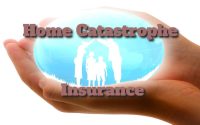Tips for Natural Disaster
Tips for Natural Disaster
Natural disasters are unpredictable but destructive events that affect all living creatures. These calamities harm many people and cause significant property damage.
Natural disasters and weather-related damage cost the US $23.46 billion per year. Floods, hailstorms, tornadoes, and earthquakes are the most common natural disasters in the United States.
As a result, many of us must take extra care to protect ourselves and our belongings.
As a result, we’d like to educate you on the decisions we may need to make due to our tight schedules. If Mother Nature decides to unleash her fury, we have compiled a list of survival recommendations.
These precautionary precautions will keep you safe during a natural disaster. Continue reading to learn more about the breadth and value of preventative measures.

How to Stay Safe During Natural Disasters
Stay informed to avoid avoidable dangers.
Keep an eye on local governments and news websites for the latest recent information and weather forecasts.
If you dread hearing the news, keep up to date on current events and developments to avoid being caught off guard. A home emergency kit with flashlights, batteries, first aid supplies, and canned food will keep you safe in a crisis.
Flood Insurance for Your Home
Flooding can happen quickly, especially with significant rain or a hurricane. There are several ways to secure your home. First, determine how the water circulates about your home. The slope or inclination of the ground can shed or allow water to seep.
You could also consider the following:
Change the water valves so that the drainage system drains on its own.
Elevate or anchor outdoor items such as petrol tanks and patio furniture.
Rebuild your home so that it is higher than the flood level.
Protect Your Home From Forest Fires
In a wildfire, no home is entirely safe, and if an evacuation order is given, heed it! However, there are a few things you can do to get ready:
First, create a safe zone around your home by removing dead or unsightly plants. Remove the firewood pile from as close to the house as feasible. Use fire-resistant materials along the roof’s edges, such as metal brackets.
The importance of a safe zone cannot be overstated. A 5- to 10-foot-wide fence that surrounds your home. Remove combustible objects, such as wooden patio furniture, and replace mulch with rocks or gravel.
Your Home’s Hurricane Protection
You may feel that defending your home against hurricane damage is impossible, but this is incorrect. You can’t stop all devastation, but you can minimise the harm to your house.
The good news is that it is possible to anticipate when a hurricane will strike. Before leaving, seal all entries, especially windows, because these are the weakest points in the house. Plywood or storm shutters will keep the glass from shattering and your home safe.
Next, secure anything that could fly away in high winds (or float away in a flood). Garden furniture, toys, tools, and even garden decorations are included.
Power outages are pretty likely during a hurricane, so be prepared. Unplug all appliances and electronics. Get a generator to keep your food from spoiling until power is restored.
Tornado Safety for Your Home
Tornadoes can strike in a moment, so you must always be prepared. The most crucial thing is to secure anything that could turn into a projectile (you guessed it, didn’t you?).
Consider installing impact-resistant windows and wind-resistant roofing the next time you repair your windows or roof if your budget allows.
Prepare for any disaster.
Make sure you have an emergency kit on hand no matter what natural calamity may come.
Nonperishable food for several days, two to three litres of water for each household member, medications, important documents, and flashlights and batteries should all be included in the kit.
You can include many more items in your emergency kit, but these are the most important.
Having a firm grasp on your finances and emergency supplies would be beneficial. If you do not have a savings account, you should purchase a parametric insurance policy for earthquakes, such as the one given by Jumpstart.
Preparing for a natural disaster will put your family and home in the best position to weather the storm and stay as safe as possible.
Install the necessary safety devices.
Metal gutters for empty spaces, metal strapping and ETICS walls, and replacing loose and broken roofs will all increase your property’s safety.
If you live in a hurricane-prone area, have a professional install a hurricane-resistant PVB window to help your home’s windows last longer.
These windows also contain impact-resistant laminated glass and a heavy-duty metal frame to protect your property from natural disasters.
Create an evacuation strategy.
When everything fails, you must have a backup plan. Evacuation is Plan B in this circumstance.
Ascertain you have a spare door or window that will function as your doorway to life.
Even a temporary barrier outside your home can provide a few quiet moments as you prepare for Mother Nature’s wrath.
If you live in North Florida, North Florida, damage restoration companies may greatly assist.
If you need to flee, contact experts who can advise you on proper evacuation procedures but also aid you in installing crucial safety equipment tailored to your area’s needs and potential natural disasters.
Personal Property Insurance
The importance of home insurance should be discussed. Weather-related dangers that can be insured against include wind, rain, frost, and lightning. So why not skip the insurance?
Before obtaining insurance, research and look into insurance companies that cover all-natural disasters. Even if they offer outstanding benefits to their customers, some insurance companies may not offer comprehensive coverage.
Rates may increase or decrease based on the severity of the damage and the cost of repairs. So, before making any changes to your policy, consult with an experienced insurance professional to confirm that your coverage is still adequate.
Mother Nature is an unpredictable force. So why try to control something you can’t?
Although natural disasters cannot always be prevented, you can take precautions to avoid injury, protect the safety of your house, and reduce damage.




